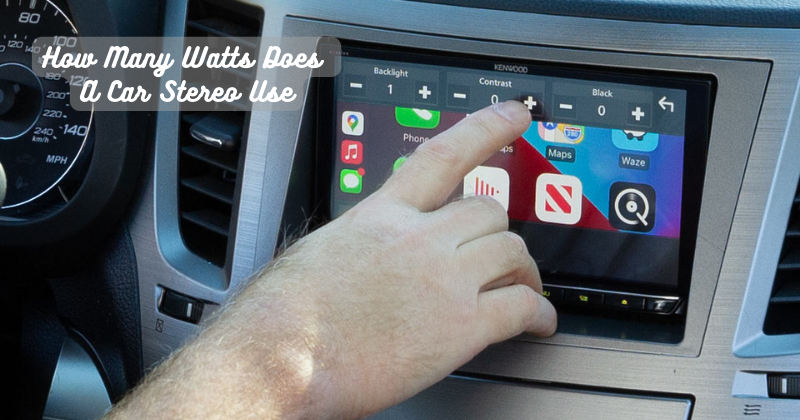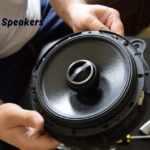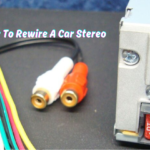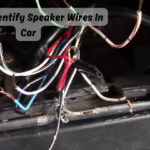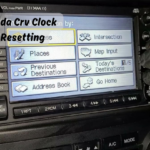The car stereo has become an essential component of modern automobiles. It provides entertainment and keeps drivers connected to the world outside while they are on the road. However, one question that often arises among car owners is how many watts does a car stereo use?
The answer to this question depends on various factors, such as the type of car stereo, its features, and usage. In this guide, we will discuss the power consumption of car stereos and factors that affect their wattage. We will also provide some tips on how to reduce energy consumption without compromising on sound quality. By the end of this guide, you will have a better understanding of your car stereo’s power usage and its impact on your vehicle’s overall energy consumption.
Types of Car Stereos
There are mainly two types of car stereos – head unit and amplifier. The head unit is the main control center that manages all audio input and output in your vehicle. It includes features like AM/FM radio, CD player, Bluetooth connectivity, and more.
On the other hand, an amplifier is a separate component that boosts the audio signal from the head unit to produce high-quality sound. Amplifiers are often used in combination with head units to enhance the overall audio experience. While both types of car stereos consume power, amplifiers generally have a higher wattage due to their ability to produce louder and clearer sound. The type of car stereo you have will impact its energy consumption and ultimately affect your vehicle’s battery life.
Factors that Affect Power Consumption
There are several factors that can impact the wattage of your car stereo, including its features, usage patterns, and installation.
1. Features
Some car stereo features, such as Bluetooth connectivity and touchscreens, can consume more power than others. The more advanced features your stereo has, the higher its energy usage will be. It is essential to consider which features are necessary for you and choose a stereo that meets your needs without excessive power consumption.
2. Usage Patterns
The amount of time you spend using your car stereo also affects its power consumption. Longer usage times will result in higher energy usage, while shorter usage times will consume less power. If you frequently use your car stereo for long periods, it may be worth investing in a more energy-efficient model to reduce your vehicle’s overall energy consumption.
3. Installation
The quality of installation can also impact the wattage of your car stereo. Poorly installed stereos may consume more power due to wiring issues or improper connections. It is crucial to have a professional install your car stereo correctly to ensure optimal performance and energy efficiency.
4. Volume and Sound Quality
The volume and sound quality of your car stereo also play a significant role in its power consumption. Higher volumes and bass-heavy music tend to consume more power, while lower volumes and balanced audio result in lower energy usage. It is essential to find the right balance between sound quality and energy efficiency for your listening preferences.
5. Vehicle Battery
Lastly, the health and age of your vehicle’s battery can also impact your car stereo’s power consumption. Older or weaker batteries may struggle to keep up with higher wattage devices, causing them to drain faster. It is crucial to regularly maintain and replace your battery when necessary to ensure optimal performance from your car stereo.
How Many Watts Does A Car Stereo Use
So now, the burning question – how many watts does a car stereo actually use? The answer varies depending on the above-mentioned factors.
On average, a head unit can consume anywhere between 5 to 20 watts, while an amplifier can range from 25 to 200 watts. However, it is essential to note that these wattage values are estimates and may vary significantly based on the type and model of your car stereo.
Additionally, the power consumption of car stereos is measured in RMS (Root Mean Square) watts, which refers to the continuous power output. The peak wattage or maximum output may be much higher than the RMS wattage, but it does not reflect the actual energy consumption of your stereo.
How to Reduce Energy Consumption
If you are concerned about the impact of your car stereo on your vehicle’s energy consumption, here are a few tips to help reduce its wattage:
- Choose a stereo with essential features that you will use regularly.
- Keep the volume and bass levels moderate to avoid excessive power consumption.
- Opt for efficient installation by a professional.
- Regularly maintain and replace your vehicle’s battery to ensure it can support the stereo’s power usage.
By following these tips, you can enjoy your car stereo without worrying about its impact on your vehicle’s energy consumption.
Mistakes that Increase Energy Consumption
As a car owner, it is vital to be aware of mistakes that can significantly increase your car stereo’s wattage. These include:
- Leaving the stereo on when not in use.
- Using features like Bluetooth or touchscreens excessively.
- Poor quality installation resulting in power drainage.
- Playing music at high volumes for extended periods.
- Using an old or weak battery that struggles to support the stereo’s wattage.
- Not regularly cleaning and maintaining your car stereo, resulting in reduced efficiency and higher power consumption.
By avoiding these mistakes, you can not only reduce energy consumption but also extend the lifespan of your car stereo.
FAQs
Should I turn off my car stereo when not in use?
Yes, turning off your car stereo when not in use can help reduce energy consumption and prolong the lifespan of your vehicle’s battery.
Do all car stereos consume the same amount of power?
No, the wattage of a car stereo can vary significantly depending on factors such as features, usage patterns, and installation. It is essential to consider these factors when choosing a stereo for your vehicle.
How can I find an energy-efficient car stereo?
Look for stereos with basic features that you will use regularly, have efficient installation by a professional, and have lower wattage ratings. Additionally, check for ENERGY STAR® certified products that meet strict energy efficiency guidelines.
Conclusion
In conclusion, the wattage of your car stereo can impact its energy consumption and ultimately affect your vehicle’s battery life. By considering factors such as features, usage patterns, and installation and following tips to reduce energy consumption, you can enjoy your car stereo without worrying about its impact on your vehicle’s overall energy usage.
Remember to also avoid common mistakes that increase power consumption to maintain the efficiency and lifespan of your stereo. Therefore, choosing a car stereo with optimal wattage and efficient usage is essential for both energy savings and enjoyment on the road. So, make sure to consider these factors before making your next car stereo purchase! Happy listening!
